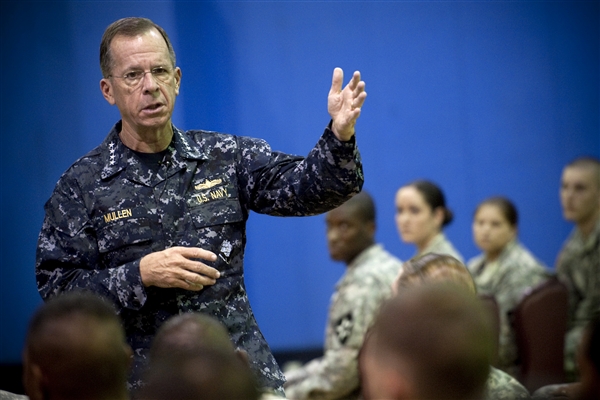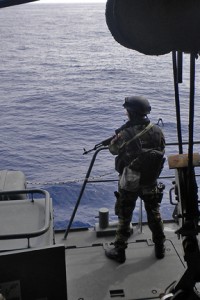WASHINGTON, July 6, 2010 — In a memo to senior civilian and military leaders, Defense Secretary Robert M. Gates reiterated the need for leaders to take media engagement seriously, and to stay within their levels of knowledge.
The memo, issued the afternoon of July 2, and was the culmination of weeks of discussion within the Pentagon on leader interaction with the media.
In the memo, the secretary said he is concerned that the department has grown lax in following long-established rules and procedures for engagement with the media.
“We have far too many people talking to the media outside of channels, sometimes providing information which is simply incorrect, out of proper context, unauthorized or uninformed by the perspective of those who are most knowledgeable about and accountable for inter- and intra-agency policy, processes and activities,” Gates wrote in the memo.
Gates wants to ensure that leaders safeguard classified and sensitive information, said Pentagon spokesman Marine Col. David Lapan. Leaking classified information is against the law, Gates said. But his memo stresses that leaders also must be careful with unclassified information. “Revealing unclassified, but sensitive, pre-decisional, or otherwise restricted information is also prohibited unless specifically authorized,” Gates says in the memo.
The secretary also wants to ensure that leaders speaking to the media know what they are talking about before they open their mouths. “The other element of it is those who are talking to the media are doing so with full knowledge of that which they speak,” Lapan said. Those speaking with the media should stay in their lanes, and not opine on areas totally outside their areas of expertise, Lapan added.
The memo also seeks to ensure that all major media engagements are properly coordinated, “so everyone is aware – up and down the chain of command – that these things are happening,” Lapan said.
The Gates memo gives his broad intent to civilian and military leaders. Experts in the Office of the Assistant Secretary of Defense for Public Affairs will issue specific implementation guidance in the near future, Lapan said.
The memo and resulting implementation guidance are not in response to the “Runaway General” story in Rolling Stone magazine, Lapan said. Following the appearance of that article, Army Gen. Stanley A. McChrystal resigned as the commander of the International Security Assistance Force in Afghanistan.
The memo is not intended to squelch any interaction with the media, and should have no effect on the day-to-day activities of reporters, the colonel said. If there is an incident in Afghanistan, for example, reporters still will be able to get the who, what, where, when, why or how facts from the commands, he said. Likewise, base commanders will not have to get prior authorization to speak with reporters about local incidents, policies or happenings.
But prior to granting requests for interviews or other media engagements with possible national or international implications, officials need to notify Defense Department public affairs officials of the event.
“This office can certainly advise commanders and others that planned engagements either may not be in the best interests or have the best timing,” Lapan said. Department officials want to ensure that those speaking have the latest information and understand the most current policy, he added.
Defense public affairs officials can recommend against a commander engaging with media on a subject, but cannot forbid it. Commanders own the public affairs program for their units or areas of responsibility, Lapan noted, and commanders can choose to ignore Defense Department advice.
Source:
U.S. Department of Defense
Office of the Assistant Secretary of Defense (Public Affairs)

 von
von 
